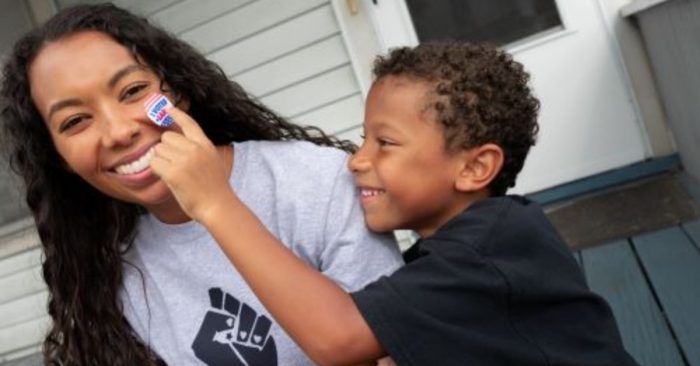 In celebration of Black History Month, On the Pulse spoke with Dr. Yolanda Evans, an adolescent medicine specialist at Seattle Children’s, about simple yet powerful ways we can encourage and teach kids to become activists in their community what this month means to her.
In celebration of Black History Month, On the Pulse spoke with Dr. Yolanda Evans, an adolescent medicine specialist at Seattle Children’s, about simple yet powerful ways we can encourage and teach kids to become activists in their community what this month means to her.
Engage your kids in conversation
It starts with role modeling and engaging in conversation.
“As a family, I encourage having conversations with your kids around differences and embracing differences,” Evans said. “Instead of ignoring or not talking about issues about inequalities and injustices, allow for dialogue and speak in terms appropriate to their age level.”
Evans suggests using books as conversation starters.
“Antiracist Baby is a great book,” Evans said. “There are also other kids’ books that highlight African American contributors which are educational and foster positive role models.”
Be involved in your school
Some school districts host different campaigns to increase diversity and awareness of diversity in the community.
“I encourage kids to reach out and be involved in campaign activities,” Evans said. “This gives them the ability to learn about diversity within a peer setting.”
Have a family movie night
Many streaming services have special sections dedicated to diverse content.
“Netflix and Amazon Prime spotlight diverse movies and documentaries that can spark conversations with your kids,” Evans said. “Your family can enjoy a movie night while also learning something new.”
Be involved in voting
Although kids are not yet of age to vote, Evans recommends that kids learn at early age the importance of voting.
“I’ve seen a lot of youth in the community get involved in campaigns to get adults in their lives registered to vote,” Evans said. “This gets them ready to become knowledgeable voters in the future.”
Support or join marches and rallies
There are many opportunities for kids to get involved in marches and rallies around certain issues.
“This past year I asked my kids to help me make posters to carry in a Black Lives Matter march,” Evans said. “Even though they couldn’t go, they made a creative contribution to an important cause.”
Parents can also choose to take their kids to marches or rallies.
“Make sure that they are appropriate for families by reaching out to those organizing the march,” Evans said.
Be a smart consumer and user of social media
More now than ever is content being spread across social media about injustice and change.
“If parents are comfortable with having their kids be active on social media, encourage them to amplify their voices by posting their own content, or reposting or retweeting messages that are in line with advocacy,” Evans said. “Have them follow organizations like the American Civil Liberties Union (ACLU) or their local chapter of American Academy of Pediatrics (AAP). This helps them get involved in advocacy and promote legislation to advocate for their health rights and dismantle oppressive systems.”
Get involved in community groups and organizations
Evans recommends encouraging kids to be active their community by joining groups in their place of worship or through other charitable organizations.
“Joining non-profit organizations like Big Brothers Big Sisters of America are good way for kids to build skills in activism,” Evans said.
Evans: What Black History Month means to me
“Black history has been a part of my life for as long as I can remember. Growing up in a family and community that saw the month as an opportunity to highlight the historical contributions of Black people that we would never learn about in other circumstances allowed us, as Black children, to have a sense of pride in how we have helped shape society.”

